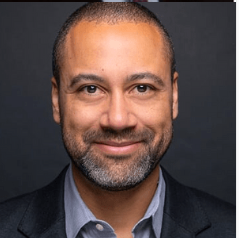In the new "Curious Minds", we speak with Jason Barnwell, Assistant GC at Microsoft, about augmenting others’ capabilities & re-thinking our view of success
Rose Ors: What leaders or thinkers outside the legal industry have influenced you in your work?
Jason Barnwell: I have been influenced by individuals outside the legal industry who explore how we think and how we make decisions. Daniel Kahneman and Dan Ariely are leading scholars in the field of behavioral economics, and studying their work has made me aware of how cognitive biases and different thinking systems affect human decisions.
Another significant influence was a Microsoft internal leadership development program that I participated in several years ago. It introduced me to basic management science concepts that were not part of the training I received as an engineer or as a lawyer. It motivated me to begin a self-study of management science literature.
Harvard Business Review proved to be a treasure trove of articles on this subject, including the work of Kahneman and Ariely. It also helped me rethink what I consider to be success in the workplace.
Rose Ors: How has your view of success changed?
Jason Barnwell: Engineering and law tend to train technicians with a default focus on individual excellence. Technicians then often view themselves as running a race where success is leaving other people behind. I have concluded the greatest success is bringing people along by augmenting their capabilities with your own.
Rose Ors: What have you learned from Kahneman and Ariely?
Jason Barnwell: The key lesson is that our decisions are not as objective, rational, and unbiased as we think they are. Kahneman’s book Thinking, Fast and Slow is a foundational work in this area. It discusses our two systems of thinking: System One is fast, intuitive, and impressionistic; and System Two is slow, deliberate, and logical. Kahneman maintains that many decisions we think are made using System Two are really the product of System One.
Ariely builds upon Kahneman’s work. It was fascinating to read about his field experiments involving how people make decisions and how many decisions are made on an irrational basis. He has authored a number of books, but I suggest beginning with reading the recurring column he writes for Harvard Business Review.

I also want to recommend one of the best de-biasing books I have read — Annie Duke’s Thinking in Bets. It provides a conceptual framework that can help us to stay focused on the quality of the decision-making process and the inputs that impact outcomes.
Rose Ors: How have you applied what you have learned about decision-making to your work?
Jason Barnwell: Learning more about how we decide has changed how I lead and how I seek to drive outcomes. Specifically, I focus more of my time seeking to understand and help improve someone’s decision process rather than focusing on the decision itself. This may sound strange, but investing time to understand how colleagues think and learn empowers them as individuals and increases organizational capability.
Rose Ors: What other management books have influenced you?
Jason Barnwell: On my must-read list are two classics by management guru, Peter Drucker. The first is Managing Yourself. It provides insights on how to develop your strengths for maximum impact. For example, his advice is for us to focus on making our strengths greater rather than making our weaknesses mediocre. I encourage anyone who is mid-career to read this book.
The second book is The Essential Drucker. It is an excellent overview of Drucker’s key management theories and includes more than 20 of his writings on individual, organizational, and societal management.
Rose Ors: Where do you get your most creative ideas?
Jason Barnwell: My daughter shows me a world I have forgotten. She helps me take off my expert hat and put on my beginner’s cap, and together we explore the world. Seeing the world through her young eyes is a gift I cherish. It is always a creative journey.
I also am trying to read more fantasy and science fiction to spark my creativity. Yuval Noah Harari’s Sapiens offers a reflection on the amazing ability humans have to imagine things that never existed. Embracing imagination is a path to creativity.
Lastly, I look to have conversations with people who know something very different than I do. On a recent business trip, I got a thorough overview of managed care systems from a pharmacist turned administrator. That business has many cultural and business challenges similar to the legal profession. More significantly, some of the solutions to their challenges may well be importable to us. I find that remixing someone else’s work is a creative endeavor.
Rose Ors: What is a big-picture question facing the legal industry?
Jason Barnwell: I have several. Does the U.S. legal regulatory and business model serve our society?
From this big-picture question, flow a few others: Is it good for the practitioners who operate within it? Can it keep up with the businesses that power our economy? Can it produce laws that regulate the world we are building in ways that maximize social utility?







